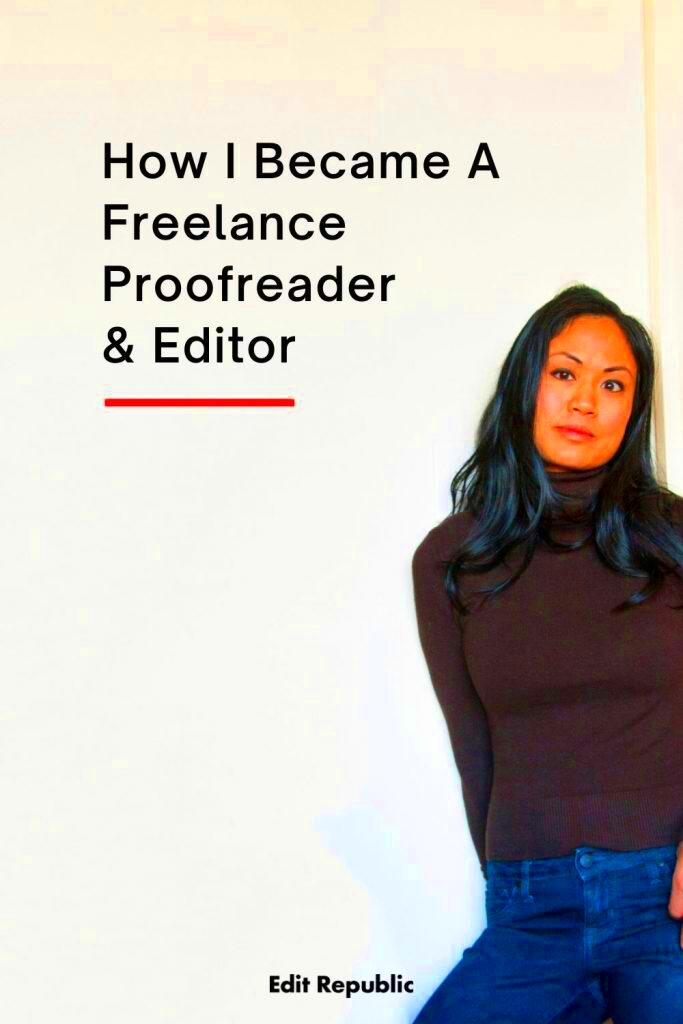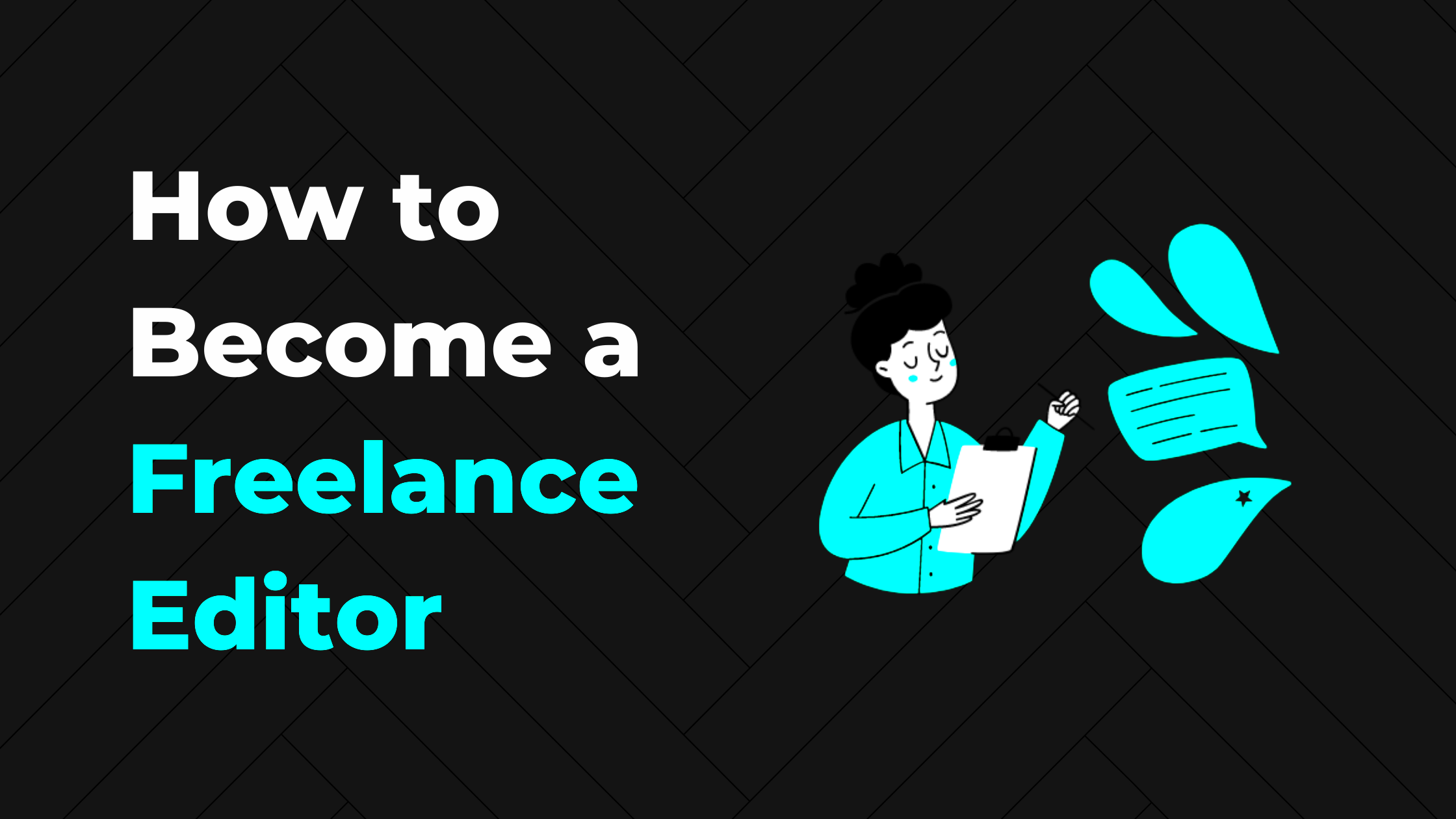The career routes for independent editors and proofreaders are very fulfilling for individuals who love the written word. No matter if you are an established professional or a beginner, there are limitless chances to help authors enhance their pieces. This blog post will take you through important points related to being a successful freelance editor and proofreader including comprehending the responsibilities involved , fundamental abilities required among other things. So let’s get started!
Understanding the Roles of an Editor and Proofreader

Although both editors and proofreaders can help with improving written content, they play different roles. For anyone who wants to become a part of this profession, knowing these differences is important. Below is a summary:
- Editor: An editor focuses on the overall structure and content of a piece. They ensure clarity, coherence, and flow, making substantial changes as needed. Editors may:
- Reorganize paragraphs
- Enhance language and style
- Provide feedback on themes and ideas
- Proofreader: A proofreader’s job is more about detail. They look for errors in grammar, punctuation, spelling, and formatting. Their tasks include:
- Correcting typos
- Ensuring consistency in style
- Checking references and citations
To summarize, editors are heavily engaged in molding the content, but proofreaders make certain that the end product is neat and clean without errors. When one knows this, they can then know where their skills can be best utilized.
Also Read This: Top 10 Hand-Drawn Logo Designers on Fiverr
Essential Skills for Freelance Editors and Proofreaders

To succeed as a freelance editor or proofreader, there are certain needed skills. Below are some of the key abilities that you should develop:
- Attention to Detail: The ability to spot errors and inconsistencies is crucial. Every small mistake can affect the credibility of the work.
- Strong Grammar and Language Skills: A solid understanding of grammar, punctuation, and style guides is necessary to provide accurate feedback.
- Critical Thinking: Editors and proofreaders must evaluate the content logically, suggesting changes that enhance clarity and impact.
- Time Management: Freelancers often juggle multiple projects. Managing your time effectively ensures you meet deadlines without compromising quality.
- Communication Skills: Clear communication with clients is vital. Being able to explain your suggestions helps build trust and understanding.
- Adaptability: Each project can be unique. Being open to different styles and requirements will help you succeed in various genres.
With these abilities acquired, editing or proofreading as freelancers would become less challenging since you will also be able to provide more valuable services for clients.
Also Read This: What Are Illegal Characters in Fiverr Gig Descriptions?
Building a Portfolio to Showcase Your Work

Consequently, as a freelancing editor or proofreader, creating a portfolio is crucial. This is your opportunity to showcase to potential clients your capabilities and reasons that should convince them to hire you. A coherent portfolio not only exhibits your expertise but also reflects your individuality style. Here are some of the secrets on forming an impressive collection:
- Include Diverse Samples: Showcase a variety of work. This can include articles, blog posts, essays, or any other documents you have edited or proofread. Diversity demonstrates your adaptability to different writing styles.
- Before and After Examples: If possible, provide samples that show your edits. This highlights your skills effectively by illustrating how you improved the text.
- Personal Projects: If you’re starting out and don’t have client work, consider editing your own writing or volunteering to help friends or local organizations.
- Testimonials: Positive feedback from past clients adds credibility. Ask satisfied clients for a brief testimonial about your work.
- Keep It Updated: As you gain more experience and complete more projects, regularly update your portfolio to reflect your best work.
Be aware that frequently, your portfolio serves as the initial perception clients get of you. It should be made to appear professional, well-structured and visually stimulating in order to draw prospective customers and exhibit your skills appropriately.
Also Read This: How to Receive Payment from Fiverr
Finding Freelance Editing and Proofreading Opportunities
For beginners, scouting for freelance editing and proofreading jobs can be overwhelming. Nonetheless, there is a treasure trove of chances all around just by employing the appropriate strategy. You could use some of these proven ways to get the job:
- Freelance Platforms: Websites like Fiverr, Upwork, and Freelancer are great places to start. Create a profile highlighting your skills and portfolio, and start bidding on relevant projects.
- Networking: Connect with writers, authors, and other freelancers. Attend writing workshops, webinars, or join online communities where you can meet potential clients.
- Social Media: Use platforms like LinkedIn to showcase your work and connect with others in the industry. Share valuable content related to editing and proofreading to build your credibility.
- Job Boards: Websites like Indeed and SimplyHired often list freelance editing and proofreading positions. Check regularly for new listings.
- Cold Pitching: Don’t hesitate to reach out to businesses, bloggers, or authors directly. Introduce yourself and offer your services. A personalized email can go a long way!
Непрерывно нарабатывая упорство и правильный подход, легко обнаружить массу возможностей, соответствующих вашим способностям и интересам. Продолжайте искать и общаться для того, чтобы постоянно иметь работу!
Also Read This: How to Bid on Projects on Fiverr: A Comprehensive Guide
Setting Your Rates as a Freelance Editor and Proofreader
Establishing your charges as a freelance editor and proofreader may be a bit of a challenge, particularly if you are just starting out. The trick is to come up with an amount that fits both your experience and the market at large. Here’s a quick guide on how to set your own rates:
- Research Market Rates: Investigate what others in your field charge. Look at freelance platforms, job boards, and industry blogs to gather information on typical rates.
- Consider Your Experience: If you’re new to the field, you might start on the lower end of the scale. As you gain experience and build a reputation, you can gradually increase your rates.
- Hourly vs. Per-Project Rates: Decide if you want to charge by the hour or per project. Some clients prefer a fixed rate, while others might be open to hourly rates.
- Specialization: If you have a niche (like academic editing or technical proofreading), you may be able to charge higher rates due to your specialized knowledge.
- Value Your Time: Calculate your desired hourly wage based on your living expenses and the number of hours you plan to work. This helps ensure your rates are sustainable.
- Be Transparent: Once you set your rates, communicate them clearly with potential clients. Being upfront helps build trust.
Bear in mind that what you charge is not solely for profit purposes, but indicates the worth of the talent and distinction of the service you offer. It’s up to you really; make sure you stand for yourself!
Also Read This: How to Edit Your Fiverr Profile
Managing Your Time and Workflow Effectively
Editing and proofreading on your own require that one learns how to manage time well. Managing many projects at once can be so draining. Although if you follow these steps, you will be able to carve out processes and improve your productive time. Thus, a few useful suggestions include:
- Set Clear Goals: Break your projects into smaller tasks with specific deadlines. This makes your workload feel more manageable and helps you track your progress.
- Use a Planner: Whether it’s a digital tool or a physical planner, keeping a schedule can help you organize your tasks. Tools like Trello, Asana, or even Google Calendar can be beneficial.
- Prioritize Your Tasks: Identify which tasks are most important or time-sensitive. Focus on high-priority tasks first to avoid last-minute stress.
- Establish a Routine: Set aside specific hours for work each day. Having a consistent schedule can improve focus and productivity.
- Limit Distractions: Find a quiet workspace and minimize interruptions. Consider using apps that block distracting websites during work hours.
- Take Breaks: Short breaks can actually boost your productivity. Step away from your work to recharge your mind and avoid burnout.
If you use your time well, you can not only satisfy the expectations of time but also keep the aspect of well being that regards your job and personal life in order for you to have fun during this process!
Also Read This: How Many Gigs Can I Create on Fiverr Level 2?
Tips for Success in Freelancing
Thrilling and satisfying it is to have a career as a freelancer, however, there are inherent challenges that come along with it. For successful freelancing career, you should consider:
- Build Strong Relationships: Networking is key in freelancing. Foster good relationships with clients, as this can lead to repeat business and referrals.
- Market Yourself: Develop a personal brand. Create a professional website and use social media to showcase your work and attract potential clients.
- Stay Organized: Keep track of your projects, deadlines, and invoices. Tools like QuickBooks or Excel can help you manage your finances and stay on top of tasks.
- Continue Learning: The editing and proofreading fields are always evolving. Take courses, read industry blogs, and keep up with trends to stay relevant.
- Be Adaptable: Each client may have different needs and preferences. Being flexible and willing to adapt to their requirements can set you apart.
- Maintain Work-Life Balance: Freelancing can blur the lines between work and personal life. Set boundaries and make time for yourself outside of work.
You can amplify your talent through utilizing these tactics and also secure a reliable and triumphant freelancing job!
Also Read This: A Guide to Becoming a Freelance Travel Writer
Frequently Asked Questions
If you are just starting on your journey as a freelancer who does editing and proofreading, there may be some queries running in your mind. Below are some responses to frequently asked questions that will ease your uncertainty:
- How do I find my first freelance job? Start by creating a profile on freelance platforms, networking, and reaching out to local businesses or authors who might need your services.
- What tools should I use for editing and proofreading? Common tools include Grammarly for grammar checks, Hemingway Editor for style, and Google Docs for collaboration with clients.
- How much can I earn as a freelance editor or proofreader? Earnings vary widely based on experience, niche, and workload. New freelancers might earn $20-$30 per hour, while experienced professionals can charge $50 or more.
- Is it necessary to specialize in a certain area? While it's not mandatory, specializing can help you stand out and attract clients looking for specific expertise.
- How do I handle difficult clients? Clear communication is key. If a client is unhappy, listen to their concerns and try to find a solution that satisfies both parties.
For any beginner in freelancing, these FAQs can be very helpful. Do not forget to look for additional support and guidance from other freelancers!
Conclusion
Being your own boss can be as delightful as any other kind of business where you are in control of everything yourself. We are talking about editing or proofreading for birth and growth of innovative minds as a freelancer. First understand how editing differs from proofreading then sharpen your abilities, manage your time and schedule effectively to establish a prosperous independent venture. Create a unique portfolio, identify and grab suitable opportunities, determine competitive pay rates and keep changing with the trends in this profession. If these guidelines are followed with concentration, one can flourish in such a diverse discipline that will impact greatly on authors and their audience while enjoying the freedom associated with being an independent editor.




